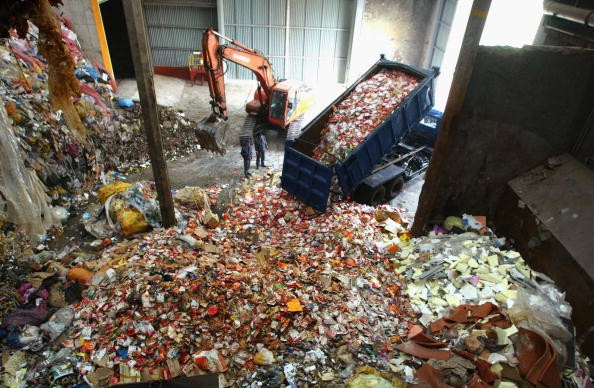Gone are the days when trash collectors ardently wait for someone to buy rubbish with tradable value. Thanks to the government's "Internet Plus" initiative, more firms are now investing in creating apps that boost China's recycling sector.
One of these companies is Beijing Incom Resources Recover Co. Ltd., who launched Bangdaojia, an application that allows users to arrange a garbage pick-up transaction through their smartphones.
Incom rose to prominence in the country's circular economy when it launched plastic-bottle collecting machines that reward depositors. Last year, the firm was able to recycle 18 million plastic bottles in the Chinese capital with its over 3,000 machines, a Xinhua News Agency report cited.
For Chang Tao, Incom's general manager, machines powered by the Internet of Things have something in common with the O2O application: both change the final destiny of trash.
"Incorporating Internet technology into the recycling chain not only expands the raw materials base, but also shows us who is recycling and where. We use the Internet to monitor recycled garbage and make sure it goes to legitimate factories where it is processed without pollution," Chang said.
Another firm, GEM, one of the forerunners in China's recycling sector, is also trying to make a difference harnessing the power of the Internet.
Back in Aug. 2015, GEM unveiled its O2O platform, Recycling Brother. The scheme was launched in Shenzhen and promoted in other cities including Wuhan, Tianjin and Jingmen.
Through Recycling Brother, users can sell trash with recycling value using the platform's detailed refuse classification. Daily the platform reaches 30 tons, with over 3,000 offline garbage collectors participating in the scheme.
According to Zhang Yuping, Recycling Brother's general manager, GEM has been boosting its capacity to recycle materials albeit encountering a bottleneck in development.
"The problem is the lack of raw materials, which is also a problem for China's recycling industry. We are competing with underground collection centers and I hope this O2O platform that allows us to collect materials directly from the user will help," Zhang said.
"The 'Internet+Recycle' mode is viable commercially and environmentally. We have carried out extensive cooperation with local governments and hope the joint efforts of government, enterprise and individual will promote the circular economy," the GEM executive added.
In Dec. 2015, the Central Urban Work Conference served as an avenue where the government called for innovation in the country's circular economy.
During the event, Pan Yonggang, vice president of the China Resource Recycling Association, noted that the "Internet+Recycle" strategy can help "build a healthy collection system, which is essential to develop a circular economy."



























